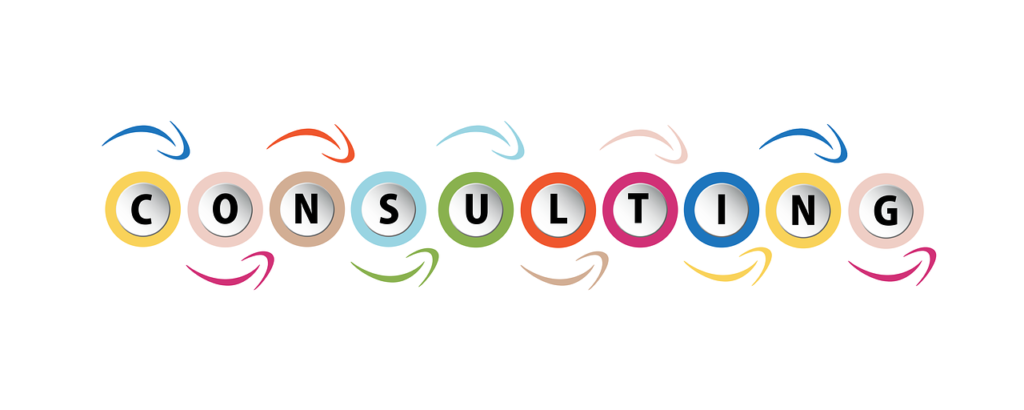The allure of the consulting industry lies in its dynamic nature and the profound impact consultants have on businesses. This sector demands a blend of expertise, strategy, and problem-solving abilities, making it a coveted career path for many. Our focus here is to equip you with a clear and actionable roadmap to navigate the complexities of entering the consulting field.
Understanding the Role of a Consultant
Consultants serve as pivotal assets to businesses, offering external, expert advice that drives strategic decision-making and operational improvements. They bring a wealth of specialized knowledge that organizations may lack internally. Within this profession, consultants analyze existing organizational problems, craft proposals for improvements, and oversee the implementation of these solutions.
The value provided by consultants stems not only from their expertise but also from their objective perspective, enabling them to offer unbiased insights. This role is crucial for companies looking to navigate complex challenges, initiate change, or optimize performance in a competitive marketplace.
Consulting careers span a diverse array of sectors, including but not limited to, marketing, strategy, operations, information technology, human resources, and finance. Each sector demands a unique set of skills and knowledge. For example, strategy consultants might guide corporate executives on high-level business directions, while IT consultants could be tasked with optimizing tech infrastructure.
Understanding the vast landscape of consulting is essential for aspiring professionals. It allows them to identify where their interests and skills align best with the needs of potential clients, setting the stage for a fulfilling and impactful career in consulting.

Different Types of Consultants
The consulting landscape is rich with diversity, offering a multitude of pathways for aspiring professionals. In the realm of consulting, specialization is key, and each pathway demands a unique set of skills and expertise. Strategy consultants, for instance, dissect complex business challenges to advise on critical decisions and long-term planning. They thrive on deep analytical thinking and a comprehensive understanding of market dynamics.
Management consultants, on the other hand, are the architects of organizational change. They evaluate and improve business processes, drive efficiency, and implement new strategies to enhance performance. Their work often intersects with human resources, finance, and operations, requiring a broad understanding of how these functions interplay to support the core objectives of a business.
Information Technology (IT) consultants operate at the intersection of technology and business. With the digital transformation of industries, they are the harbingers of innovation, guiding firms through the integration of cutting-edge tech solutions. IT consultants must not only be fluent in the latest technologies but also adept at translating technical solutions into business value.
Within each of these branches of consulting, specialized knowledge is not a mere advantage—it’s a necessity. Strategy consultants might delve into market research and competitive analysis, whereas IT consultants might focus on cybersecurity or cloud computing. What unites them all is the relentless pursuit of excellence and the ability to turn insights into actionable recommendations that drive business success.
Essential Skills for Aspiring Consultants
Analytical Skills
As a consultant, the ability to think critically and solve complex problems is paramount. Developing strong analytical skills will enable you to dissect challenges, identify opportunities, and provide data-driven solutions.
Suggested Learning Pathways
- Lousiana State University: Online Graduate Certificate in Analytics
- University of Pennsylvania: Business Analytics: From Data to Insights
- Indiana University: Online Certificate in Business Analytics
Communication Skills
Effective communication is at the core of successful consulting. Whether interacting with clients, presenting findings, or collaborating with team members, honing your communication skills is crucial for building credibility and fostering strong working relationships.
Suggested Learning Pathways
- Northwestern University: Corporate Communication and Branding Online Certificate Program
- UCLA Extension: Business Communications Certificate
- Harvard Extension: Business Communications Graduate Certificate
Teamwork and Collaboration
Consulting projects often involve interdisciplinary teams. Cultivating a collaborative mindset and the ability to work seamlessly with others will contribute to the success of projects and enhance your overall effectiveness as a consultant.
Preparing for a Consulting Career
Embarking on a consulting career necessitates deliberate academic and professional choices. The journey begins with the selection of an undergraduate or advanced degree that aligns with your consulting aspirations. A curriculum that sharpens analytical, problem-solving, and communication skills lays a foundational stepping stone for your future role. It’s not just about obtaining a degree; it’s about choosing one that is relevant and will provide the expertise needed in the consulting world.
Alongside formal education, gaining practical experience is pivotal. This experience could take the form of internships, project work, or part-time roles within industries of interest. Seek opportunities that challenge you to apply classroom theories to real-world scenarios, fostering a deeper understanding of the complexities within businesses. These hands-on experiences not only bolster your resume but also give you a competitive edge in the job market, demonstrating your capability to potential employers.
Developing a skill set that is sought after in the consulting industry is an ongoing process. This includes honing soft skills like leadership, teamwork, and adaptability, which are as critical as technical knowledge. The ability to navigate complex situations and to work well with others are traits that consultants must possess to succeed. As you prepare for a career in consulting, focus on experiences and learning opportunities that will help you build these essential skills.

Educational Background
While there is no one-size-fits-all educational path to becoming a consultant, certain degrees and certifications can provide a solid foundation. Many consultants hold degrees in business, finance, management, or related fields. Pursuing additional certifications relevant to your area of interest can further enhance your credentials.
The educational path you choose for a consulting career can vary depending on your interests, the type of consulting you want to specialize in, and your long-term career goals. Here are some recommended educational paths:
Bachelor’s Degree
Pursue a bachelor’s degree in a relevant field such as business administration, finance, management, economics, or a related discipline. Consider programs that offer a strong foundation in analytical skills, problem-solving, and communication.
Master’s in Business Administration (MBA)
Many consultants, especially in management consulting, hold an MBA. This advanced degree can provide you with a broader understanding of business strategy and management. Choose an MBA program with a reputation for strong networking opportunities and connections to consulting firms.
Specialized Master’s Programs
Some consulting roles may require specialized knowledge. Consider pursuing a master’s program in areas such as data analytics, information technology, or healthcare management, depending on your interests.
Certifications
Obtain relevant certifications to enhance your skills and marketability. For example, certifications in project management (e.g., PMP), data analysis (e.g., Tableau), or industry-specific certifications can be valuable.
Industry-Specific Knowledge
Depending on the consulting sector you’re interested in (e.g., healthcare, finance, technology), consider acquiring industry-specific knowledge through coursework, certifications, or work experience.
Remember that consulting is a dynamic and multidisciplinary field. While formal education is valuable, the ability to think critically, solve problems, and communicate effectively is equally important. Tailor your educational path to align with your career goals and the specific requirements of the consulting sector you aspire to join. Additionally, leverage networking opportunities to connect with professionals in the field and gain insights into the industry.

Gaining Practical Experience
Internships and Entry-Level Positions
Securing internships and entry-level positions in consulting firms or related industries can provide valuable hands-on experience. Look for opportunities to work on real-world projects and gain exposure to the consulting process.
Case Competitions and Workshops
Participating in case competitions and attending workshops can help you develop practical problem-solving skills. These experiences not only enhance your resume but also demonstrate your commitment to continuous learning.
Building a Consulting-Specific Resume and Cover Letter
Embarking on a consulting career begins with presenting yourself as the ideal candidate through a meticulously crafted resume and cover letter. Consulting firms seek standout applicants whose resumes reflect a blend of analytical prowess, strategic thinking, and a proven record of solving complex problems. The challenge is to distill your experiences and qualifications into a format that resonates with the discerning eyes of industry leaders.
When sculpting your resume, focus on achievements that quantify your impact. Whether it’s through leading successful projects, driving revenue growth, or innovating solutions, your resume should tell a compelling story of how you’ve made a tangible difference. Highlighting your leadership roles and how you’ve navigated challenges will demonstrate your readiness for the dynamic world of consulting. Precision is key—every bullet point must convey value and intent.
Your cover letter, on the other hand, offers a platform to weave your narrative, connecting the dots of your career journey with the consulting role you aspire to. It’s your opportunity to articulate why you’re drawn to the consulting industry and how your unique blend of skills and experiences align with the firm’s ethos and needs. Persuasiveness in your cover letter is achieved not just by stating facts but by telling your story in a way that engages and resonates with the firm’s goals. Be concise, be clear, and most importantly, be memorable.
Together, your resume and cover letter are your ambassadors, speaking volumes before you’ve had the chance to articulate a single word. They must reflect the professional and informative ethos synonymous with consulting professionals. In a competitive landscape, they are the tools that will help pave your pathway to advancement.

Preparing for Consulting Interviews
Embarking on a career in consulting requires not only a strong foundation of knowledge and experience but also the ability to demonstrate these qualities during the interview process. Consulting interviews are unique, with a format designed to assess a wide range of skills, from analytical thinking to interpersonal communication. As you prepare to enter this competitive field, understanding what to expect and how to excel in these interviews is crucial.
Typically, consulting firms employ a two-part interview process. The first part gauges your fit within the company culture and your soft skills, often referred to as behavioral interviews. Here, interviewers are looking for concrete examples that demonstrate your leadership, teamwork, and problem-solving abilities.
The second, and often the more challenging aspect of consulting interviews, is the case-style interview. In these, you’re presented with a business problem and asked to work through it, presenting your findings and recommendations. This is where your analytical prowess and strategic thinking are put to the test.
To stand out in behavioral interviews, practice structuring your responses using the STAR (Situation, Task, Action, Result) method to articulate your experiences clearly and effectively. Be ready to draw parallels between your past experiences and the qualities consulting firms are looking for.
When it comes to the case-style interview, there’s no substitute for practice. Familiarize yourself with common types of business problems and practice structuring your analysis. Learn to break down complex problems into manageable parts, and practice articulating your thought process clearly and concisely.
Remember, consulting firms are looking for candidates who not only have the right answers but also those who fit into their culture and work style. Demonstrating your ability to approach problems methodically and communicate effectively will place you a step ahead in the competitive consulting landscape.

The Power of Networking in Consulting
In the dynamic world of consulting, the strength of your professional network can often be as valuable as your skill set. Cultivating relationships with industry professionals opens doors to new opportunities, insights, and the exchange of ideas that are crucial for a successful consulting career. Networking is not merely about collecting contacts; it’s about building meaningful partnerships that can lead to mutual growth and opportunities.
One effective strategy for expanding your professional network is to actively participate in industry events and conferences. These gatherings are hubs for thought leadership and provide the perfect setting to engage with peers, potential mentors, and thought leaders. Engaging in discussions, asking questions, and sharing your perspective can make you memorable and open the door for further communication.
Leveraging alumni networks is another powerful approach. Alumni associations are built on a foundation of shared experiences and can often be the most willing to offer support and guidance. Reaching out to fellow alumni working in consulting, attending alumni events, and participating in online forums can help you connect with professionals who might be instrumental in your job search or career development.
Professional associations specific to consulting also play a pivotal role in networking. Membership in these organizations often comes with access to exclusive job listings, industry publications, and professional development resources. They also offer a platform for establishing your presence in the consulting community through volunteering, committee involvement, or speaking engagements.
Remember that effective networking in consulting is about cultivating relationships with a long-term perspective. It’s about engaging with others in a way that adds value, displays your expertise, and demonstrates your genuine interest in the field. By harnessing the power of networking, you position yourself not just to enter the consulting world, but to thrive within it.
Ready to Jump Into Your Consulting Career?
Embarking on a consulting career requires a combination of education, skills development, networking, and practical experience. By following this comprehensive guide, aspiring consultants can navigate the path to success with confidence. Remember, the journey into consulting is not just about landing a job but about continually evolving and making a lasting impact in the ever-changing business environment. Embrace the challenges, stay curious, and enjoy the exciting and fulfilling world of consulting.

